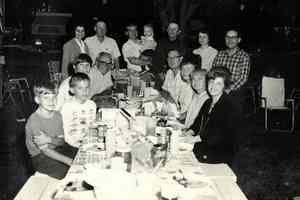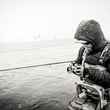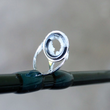She didn’t break my heart. She may have blindsided me a little, but it’s not as if she took my legs out and left me writhing in agony. We didn’t have enough history for that; there had been nothing promised. She simply vanished from my life—a life in which her appearance was at best a memorable cameo.
Not that I was blessed with the kind of telescopic perspective that enabled me to see that at the age of 17, when every word, glance, and gesture from a girl you’re interested in is freighted with earth-shattering significance.
Except in passing, I hadn’t thought of her in years. But then, having lunch at a crowded restaurant, I saw an attractive, nicely built brunette about my own age who reminded me of her—meaning the her I imagined she might have become—and I was overwhelmed, suddenly and desperately, by the desire to find out where she was and what she’d made of her life. Not to contact her or initiate any kind of lamentable “relationship,” but just to know. It was as if, after gestating for nearly 40 years, my inner stalker had emerged. I wolfed my meal in a distracted rush.
You have to trust me on this: I’d never, ever, tried to locate a person from my past. The idea had always seemed pathetic. But now I fired up my computer, brought up Google, typed her name and a couple other keywords into the Search field, and hit Enter.
She’d gotten away a long time ago. But to a degree I hadn’t been aware of until that moment, she’d never gone away.
I’d been wondering what made it so important to find her, what it was that hollowed out a space and lodged there, preserved like the encysted shrapnel some war veterans carry. Then I remembered the way my eminently practical mother used to say “There are other fish in the sea” whenever I was moping around after a girl, and it occurred to me that, in love as in fishing, the ones we can’t forget tend to be the ones that get away—the objects of desire that escape, elude, or otherwise confound us. The big crappie in northern Minnesota that left my 8-year-old self in tears when the hook tore out as Dad attempted to lift it into the boat; the bonefish on Exuma that my guide, the great Will Rolle, thought was a shark when he first spotted it; the chrome-bright steelhead that I fought to a standstill on a Lake Michigan tributary but ultimately lost in the heavy current; the first permit I ever fooled in Belize, a devastating Atlantic salmon that rose to a dry on the Gaspé, the two decent muskies I’ve had on flies in the lake country of northern Wisconsin…
More Like This
A catch is always in some sense an ending. But a loss can mark the beginning of something.
First, there is pain. It takes different forms, of course. Early in the arc of one’s angling career, losing a fish hurts because possession means everything (and as an aging baby boomer I grew up in that antediluvian epoch when releasing a good fish was as inconceivable as driving a Japanese car). If you don’t get it into the boat, or into the net, or to your hand, it doesn’t count. It’s like a long out in baseball, a putt that singes the cup … Round up the usual sports analogies.
It hurts because it means you missed a chance to tack a skin to the wall, too, and for better or worse whatever cred we establish as anglers is all about the big ones. Until you reach certain benchmarks, you can’t be a member of the club. You’re outside, looking in. Long-distance release? What a crock.
Later, as your values as an angler putatively evolve, while it’s still gratifying to bring a fish all the way in—and while there’s an added urgency with fish of a size you’d like to tape or photograph—the sting of loss mostly stems from the degree to which it strikes you as a referendum on your abilities. Or, perhaps more accurately, your lack thereof. To say nothing of any metaphors it seems to offer for your sad, wasted life.
Assuming you haven’t attained that state of Zen-like serenity that allows you to rise above such ruinous trivialities. These oases of angling calm are rumored to exist although in all my travels I’ve met only one, a fly fishing flower child I’ll call Monty.
Even as the 20th century gave way to the 21st, Monty kept one stocking-wadered foot firmly planted in the Summer of Love. Those who frequented the same waters universally had the experience of encountering him sitting streamside (few recall him actually fishing), a beatific smile on his stubbled face and, if the wind was right, the faint aroma of cannabis. When queried about his luck, his reply would invariably be some variant of “I’ve had a great day. Took three browns between 16-and-18 inches and a rainbow that pushed 20, all on dries.”
When his interlocutor expressed astonishment at this and asked the secret of his success, he’d explain, without a trace of irony or self-consciousness, “I caught them in my mind.”
She was a waitress at a hole-in-the-wall pizza joint, a place we didn’t know existed until my buddy Dick scored a coupon. In those days when gas was cheap, driving all the way across town to get two bucks off a large combo was a no-brainer.
The Pizza King was dimly lit and mostly empty. We seated ourselves at a table, and when she arrived to take our order it was as if we’d been robbed of the power of speech. She was pretty enough, in that Midwestern girl-next-door way, with shoulder-length brown hair and sea-blue eyes—but she had the kind of super-curvy figure, shown to spectacular advantage by a clingy sweater, that made us break out in a hot sweat. In retrospect I’d describe her proportions as “Junoesque,” but that wasn’t in my vocabulary then.
Out of our league? She was out of our solar system. Having no girls comparable to her at our high school, we assumed she must be a student at one of the local colleges. This only served to enhance her aura of goddess-like unattainability. The idea that either of us could hope to date such an otherworldly creature was laughable.
Except it wasn’t. A couple weeks later, during my lunch break from the sporting goods store where I worked on Saturdays, I wandered into a bookstore and almost literally bumped into her. She looked amazing (she was wearing another clingy top), and in that clean, well-lighted space I saw that she had a sprinkling of freckles, like flecks of golden brown sugar, on her nose and cheeks. This accentuated her wholesome good looks and made her seem more real, if that’s the right word. Or at least it made her seem more approachable, so I screwed my courage to the sticking point and asked if she was still waitressing at the Pizza King.
She turned, gave me a slightly quizzical smile, and said “You’ve eaten at Pizza King? It’s such a dump…”
That broke the ice. Her name was Cindy, and far from being the college student I imagined her to be it turned out that she was, like me, a junior in high school. This intelligence blew my mind—she laughed when I confessed that my friend and I thought she had to be in college—and it also blew open the door to that possibility I hadn’t dared entertain. Screwing up my courage again, I asked if I could call her sometime.
“Sure,” she said, and told me where to find her in the phone book.
It was one of the most purely euphoric—and triumphant—moments of my life. I could hardly believe it had happened, and I couldn’t wait to tell Dick. He was going to s--t.
There’s another category of fish that get away—a sub-category, really—and while their numbers are fewer the place they occupy in our personal history manages the neat trick of being somehow both deeper-rooted and closer to the surface. Mystery Fish, they might be called, the ones that stay deep and pull hard, the ones you make little headway with and lose before you ever lay eyes on them.
And, more tellingly, before you’re able to ID them, which is why, long after the fact, they continue to exert such a powerful hold on our memory, and on our imagination. We’re wired with the need to know, to wrap things up in tidy packages—and when we can’t even wrap them up in a messy package, which I think is what we do with fish we get a look at before they shake free, the loose ends crackle and spark, prodding at some ancient part of our brains. Powerless to turn off the juice, we revisit the incident time and again, searching for answers we know we’ll never find but mostly just wondering. And then wondering some more.
I’d hoped I’d not have to invoke that overworked term “closure,” but I fear it’s unavoidably appropriate here.
There was the fish that took in the indigo water where an inshore Lake Michigan flat dropped off, a fish that transmitted an alarming sensation of mass and purpose while I frantically torqued on the drag trying to slow it down. It was no use. I was left with a sheared tippet, a lifeless line, and the mystery of what manner of rough beast I’d tangled with. Trout? Salmon? Carp? I have my theories, but I’ll never know for certain.
Cindy and I went out on a couple of dates, I hung out with her at her house once or twice. We played gin rummy, which I liked to think I was pretty good at, and she kicked my ass. She was hard to read, and not just at cards. It wasn’t so much that the signals were mixed as that they were indefinite. So, not wanting to overplay my hand in the game of romance, I kept my trembling ardor in check and took it slow, waiting for things to come clear. A goodnight kiss on the front porch was as far as we ever went, although when I held her close and felt the magnificent compression of those majestic breasts—even through several layers of clothing, and even for just a few seconds—the thrill was indescribable. As was the agony.
Maybe it’s just as well that that’s as far as it went. As impressionable and inexperienced as I was, further exploration might have damaged me irreparably.
This was in the spring, at the end of the school year. That summer, Cindy went to England on some kind of exchange program. She sent me a sweet and sunny postcard that led me to believe she might be ready to take our relationship to the next level (not that anybody said that then); she even signed it “Love.”
But something changed, and to make a short story shorter I never saw her again. I called her several times, but she was terse, and chilly, and she always had “other plans,” and as puppy-hopeful and hormone-addled and thick-skulled as I was, the rational part of me finally won out and I was forced to conclude she wasn’t interested in me. I was hurt, but more than that I was perplexed. Was I too nerdy and bookish for her, too straight, too uncool? We went to different schools, we had no friends in common, and of course this was decades before the rise of social media, so I had no way of knowing the answer, and no avenue for finding out.
Truth to tell, I got over Cindy pretty quickly, helped along by my mother’s counsel but more propulsively by the attentions of a free spirit named Shari, a wannabe hippie chick for whom no garment was too revealing to go braless in. Cindy’s memory shrank, but it never went away. There was too much about her—damn near everything, in fact—that I didn’t know. The space of wanting had become inhabited by her mystery.
The ancient Greeks, who mapped the abyssal topography of human nature 2,500 years ago and left it to the rest of us to crawl around among the snakes and scorpions, recognized this paradox. What is perhaps the oldest riddle in Western Civilization concerns a group of boys who flummoxed Homer, considered the wisest man in Greece, with the challenge “What we have caught we leave behind, but what has escaped we carry with us.”
The Riddle of the Lice, it’s called.
I don’t see many Mystery Fish in my future, to be perfectly honest. As I stumble down the sporting road I seem to spend less time fishing, in the sense of lobbing out a hook and taking whatever comes, and more time hunting for fish. This is the essence of flats fishing (not that I get to do that very often), but even my trout fishing these days is mostly about spotting risers and casting to them, not drifting nymphs or swinging streamers. Plenty get away—I’d have dearly loved a better look at the brown that shot out of an undercut bank one day last April and savaged a caddis imitation with the ferocity of a smallmouth blasting a popper—but they don’t sear themselves into my memory the way they used to. They don’t leave me wondering.
I wish finding Cindy hadn’t been so easy. What my Google search returned was her obituary—a document so parsimonious in detail, so truncated and flat and rote, that I could only stare at it with my fists balled and my mouth open and think This can’t be all.
But it was. She’d died of unspecified causes in a crummy little town in Iowa, she left a husband and children, she was “a devoted mother and homemaker.” Nothing else. The sadness of that was crushing.
This time, she broke my heart.






























Comments
dare kuni replied on Permalink
Argh! (good story, sigh).
Ivan Calhoun replied on Permalink
Good read.
Pages